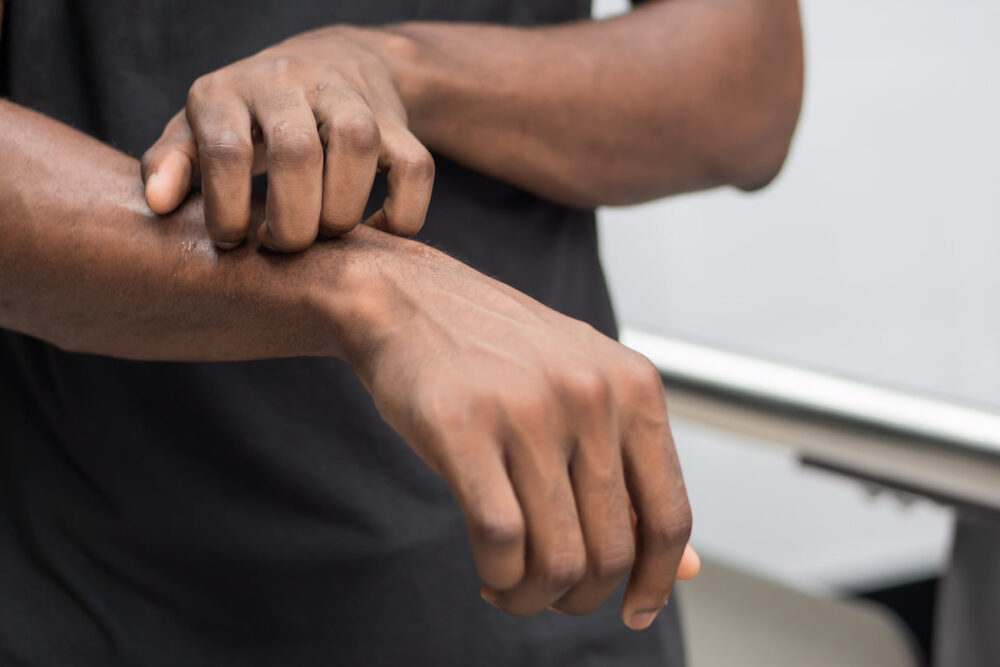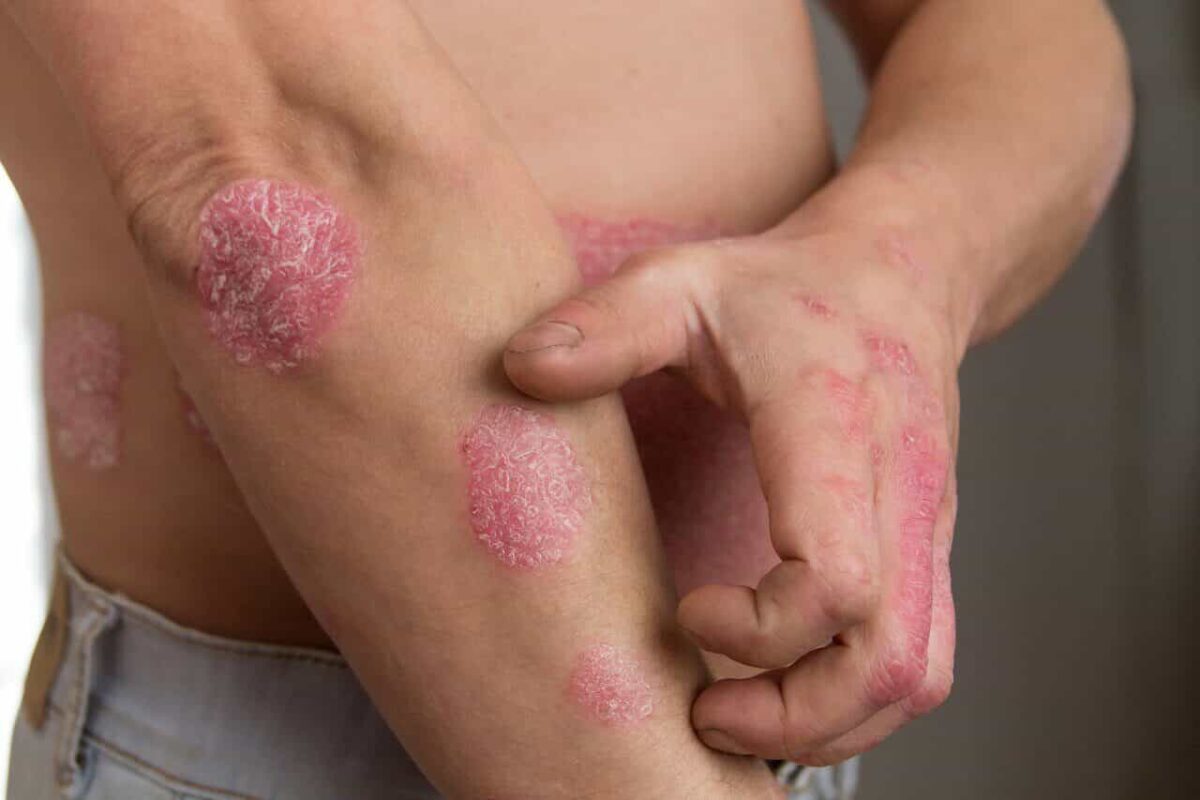
Are you constantly asking yourself why you feel itchy when you lie down in bed for the night? Don’t worry, you’re not alone – here are some reasons why you may be feeling this way and what can be done to fix it.
It can seem like everything is against you, from your partner’s snoring and your pet’s strange need to sleep on your head, especially when your skin revolts. You are not the only one experiencing itchy skin at night. It happens. It is real. It’s also very annoying.
Doctors use the term “nocturnal pruritus” to describe itchy skin at night. It’s common in people suffering from dermatological conditions like eczema or psoriasis. However, it can also be experienced by people without coexisting skin conditions,” and it is actually pretty common.
Itchy skin can occur at any stage of the body’s natural sleep and wake cycle, but it is more common to feel it just before you go to bed. So, why is your skin itchy at night?
Why do you get itchy skin at night?

Although it’s not clear exactly why nocturnal pruritus occurs at such an inconvenient time, doctors have some theories. There are many physiological modifications that occur in your body during the night.
Your body regulates your core temperature so that it is lowest at night. D. Schwarzburg, MD at MiracleFace MedSpa explains that the body regulates its core temperature by increasing blood circulation to the skin. This allows heat to evaporate from the body. The temporary increase in body temperature could cause increased itchiness.
At night, your skin’s ability to retain moisture is at its lowest. Dry skin can lead to itchy skin and an impaired skin barrier, which can make it easier for pruritogens (itch-inducing substances) to cause skin irritations.
These substances are made by your cells for many reasons. After the substances have been released, they bind with specific receptors on the skin activating nerve endings. This can trigger itchy skin at night — or any other time.
The body’s levels of anti-inflammatory corticosteroids are lower at night. However, certain itch-inducing hormones (hormones that act like tiny signaling messages) and cytokines are released in greater quantities. This can increase the discomfort of itching.
There’s also the psychological aspect: We have fewer distractions at the end of the day, making it easier to feel any itching.
Itchy skin can be worsened at night due to stressors and mental factors

There is a strong correlation between psychological issues (stress and anxiety, depression, and itching at night) but it’s not known how the two can lead to each other.
One theory suggests that psychological drama may trigger the body’s fight or flight response. This can flood the body with hormones like cortisol, adrenaline, and activate the immune system (cue histamines).
Stress can be reduced in doses that are small enough to have an anti-inflammatory effect. This may help reduce stress-induced itching caused by excess histamines. Chronic stress and anxiety can cause your body to stop producing enough cortisol. This could lead to itchy skin at night.
Another possibility is that our skin acts as a pathway to our nerves and can cause intense itching.
Itching and sleep deprivation may result in a vicious cycle. An out-of-control sleep cycle can cause a disruption in the hormones that regulate nocturnal pruritus. This could lead to a cascade effect that eventually triggers itchy skin at night.
A health issue that causes itchy skin at night could also be the cause

Itching can be caused by a skin condition such as eczema or psoriasis. Pest infestations such as bed bugs or scabies can cause itching at night, as well, and maybe more severe if they are active.
Itchy skin can also be caused by non-dermatological conditions such as restless legs syndrome, diabetes, thyroid problems, kidney disease, and even cancer.
These conditions can cause itchy skin at night due to hormonal imbalances, autoimmune responses, or sensory reactions. Other than itchy skin at night, other symptoms include night sweats and constipation, dry feet, weight gain, dizziness, and fatigue.
So what can you do about this night time itchy skin?

If you don’t have an underlying condition that causes itchy skin at night, there are a few things you could do to alleviate the discomfort without having to scratch. You should know that the more you scratch, it will cause nerve endings become more sensitive.
You can prevent your skin from drying by using a non-fragrance lotion during the day and before bed.
Avoid hot showers as they can trigger histamine release, which can cause itching. You should also keep your skin cool at night, such as with cold showers or humidifiers, to reduce itching.
Topical steroids such as hydrocortisone cream can also be helpful in breaking the scratch-itch cycle. You can also try popping an antihistamine like Benadryl. Antihistamines reduce the body’s natural response of inflammation to itching.
You may also want to consider medical-grade skin treatments that can help hydrate your skin, for example, the AquaGold facial, which is a form of microneedling that also hydrates and nourishes your skin. You can learn more about AquaGold by exploring this link.
Experts recommend that you see your doctor if your itchy skin is making you lose sleep at night or persists for more than a few days. A doctor can diagnose any conditions that may be causing your nocturnal pruritus or refer you to a dermatologist to get treatment.








